A Decentralized Infrastructure for the Future of Social Media
Federico Ast tells us the bigger story behind Susie and Kleros Moderate about the coming future infrastructure of social media and beyond.
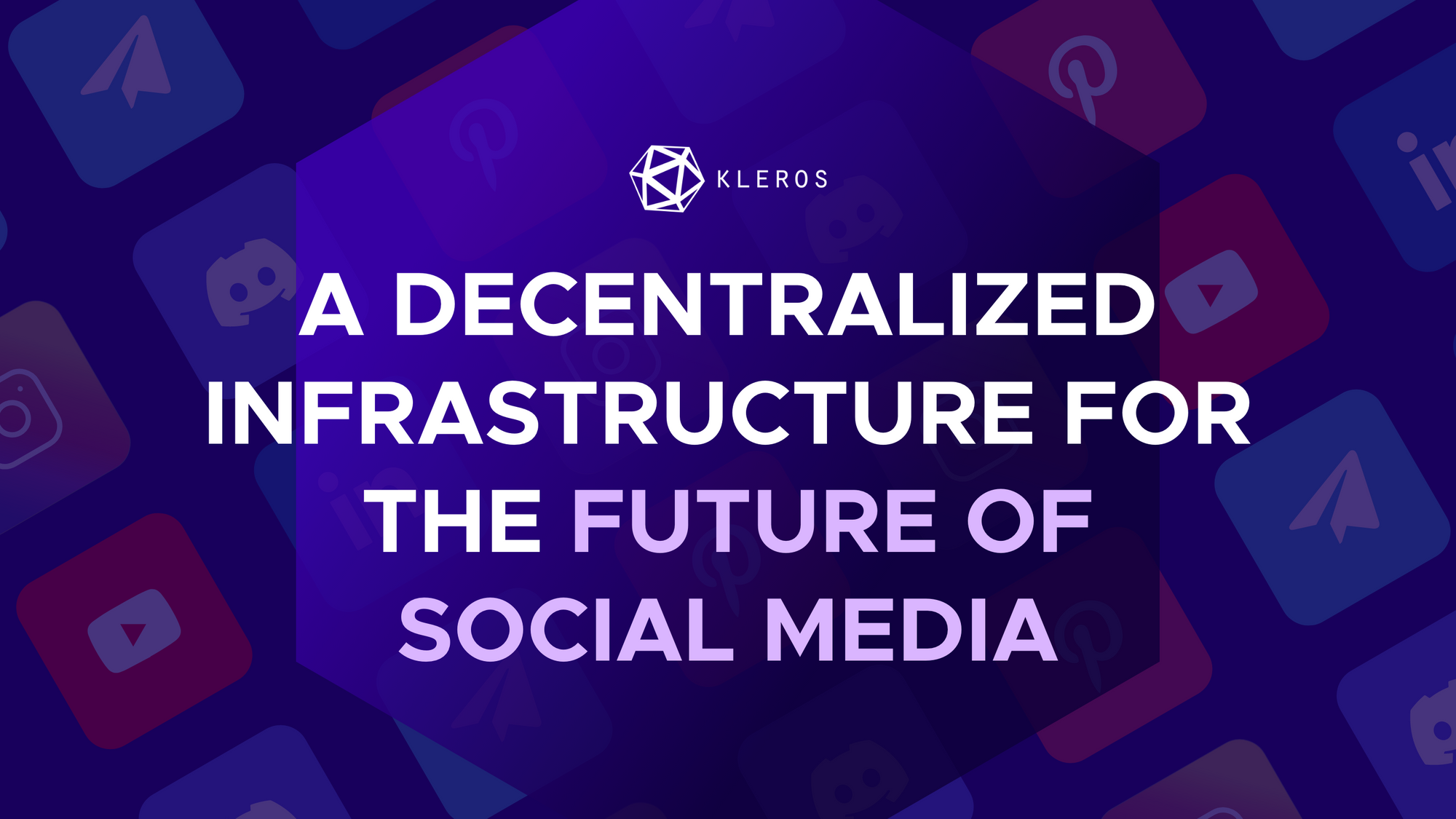
At Kleros, we're building the future governance infrastructure of social media. This is our thesis, what we have built so far and our vision for the future.
Social media has become the main way we communicate with each other, get informed and entertained. This obviously brought huge benefits, but also challenges, which recently became apparent with controversies around Meta and the acquisition of Twitter by Elon Musk.
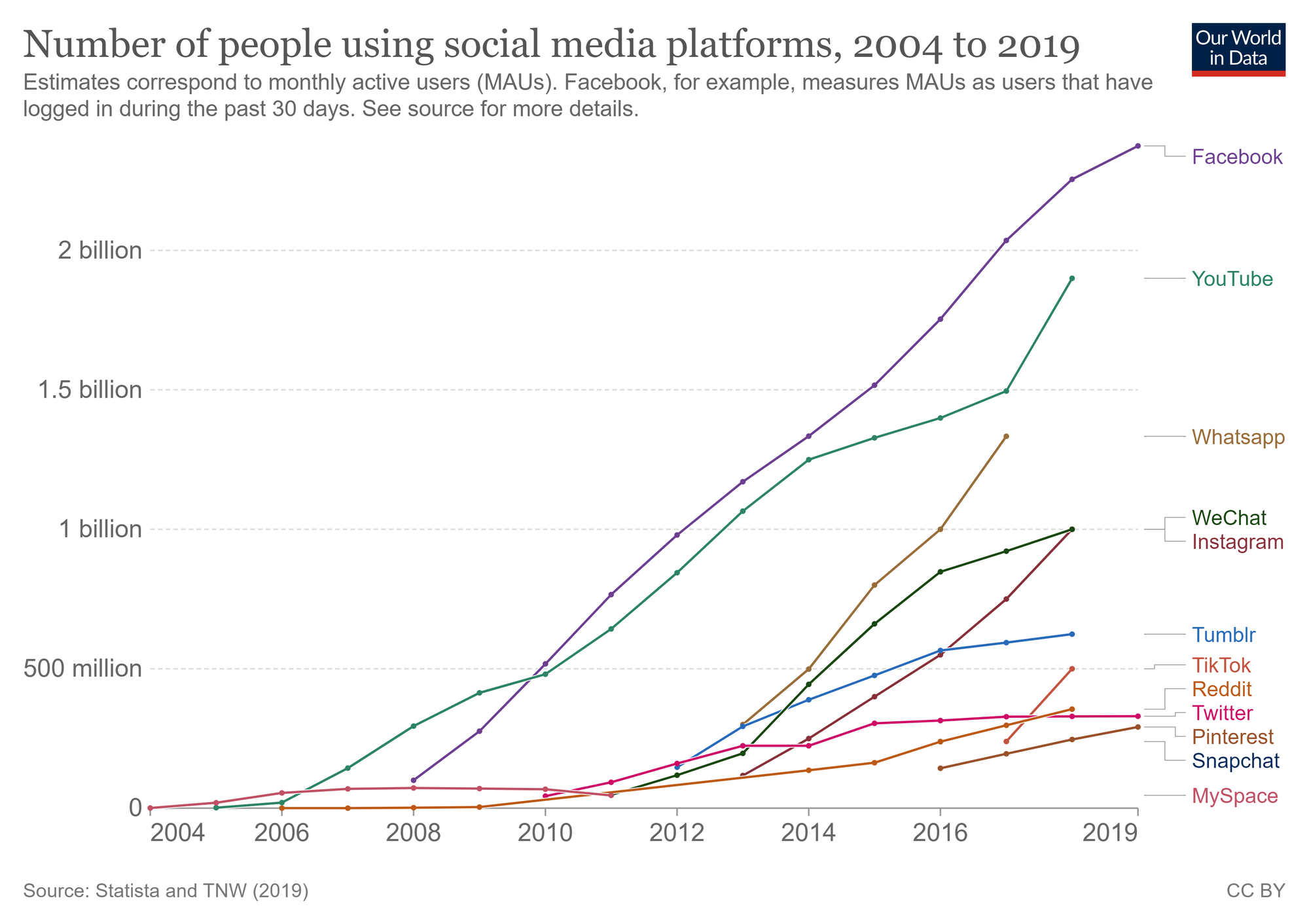
In a world where most of our social interactions happen online, governance of social networks affects fundamental rights, such as free speech. Deplatforming a user can cut their ties with friends, family and their job, the modern equivalent to ostracism.
Executives ultimately responsible for such decisions are under huge pressure. Think of Jack Dorsey having to decide whether to ban Trump in the middle of the Capitol storming crisis.

In October 2020, Facebook launched their Oversight Board (aka "Facebook's Supreme Court") in order to "answer some of the most difficult questions around freedom of expression online: what to take down, what to leave up, and why".
Kate Klonick's article published at The New Yorker explains how this court was created and the politics that went into the process (including how Trump unsuccessfully lobbied to remove Pamela Karla from the Oversight Board).

A Decentralized Future for Social Media Governance
The rules of engagement and enforcement mechanisms in social media platforms seem to be becoming public goods which require community involvement to achieve legitimacy and neutrality.
At Kleros, we have been thinking about these problems for a long time, so its useful to look back and see what approaches Kleros envisaged to tackle this complex problem and what solutions we offered. In our first white paper we wrote with Clément back in 2017 (6 years ago!), we identified social media disputes as a key field for decentralized justice.
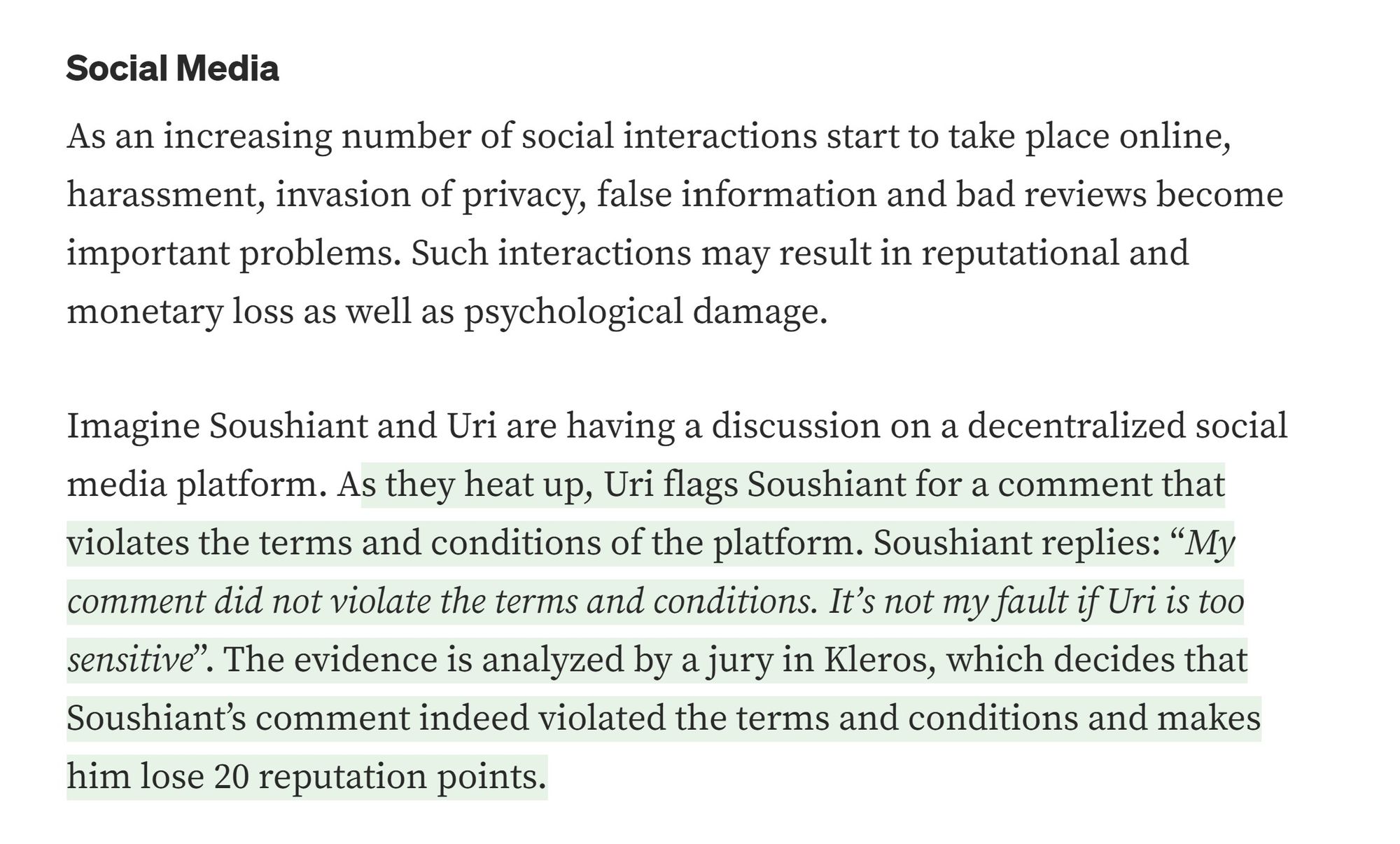
At EthCC 2021, I gave a general overview of the challenges of content moderation in Web2 and proposed an alternative approach based on prediction markets and Kleros arbitration. This approach was inspired by Vitalik Buterin's post “Prediction markets for content curation DAOs” published in 2018.
In that same conference, our developer Matheus Alencar presented a practical curation experiment we made with a Twitter bot called Pythia in which anyone could accuse users of spreading fake news.
A year later, in July 2022 we launched our first content moderation product - Kleros Moderate, a Telegram bot (coming soon to a Discord near you!) enabling group owners to have content moderation claims handled by Kleros.
After some time in beta, Kleros Moderate has been officially launched and is now operational in different Kleros groups.
The Kleros Approach
Our thesis is that the future of content moderation will rely on a combination of technologies addressing cases of varying complexity. AI for simpler cases. Decentralized justice for more complex ones.
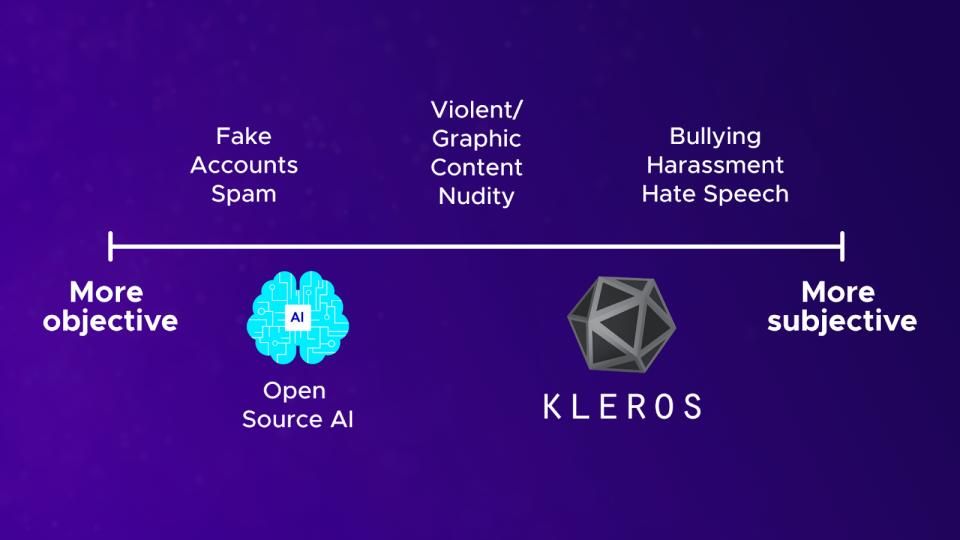
User verification is another important piece of governance infrastructure for the future of social. As was made clear with the Twitter acquisition, many problems arise with the existence of the many bots in social media platforms. And Kleros can help solve it.
Susie - The Kleros Solution

Susie is the flagship Kleros bot that is fully operational and helping moderate the entire Kleros communication stack on Telegram at this moment. In principle, Susie works across different chats that function under the umbrella of so-called Federations, where decisions that pertain to a specific user in one chat are enforced across all other chats.
How does Susie work in practice?
The process is simple. The group owner sets up a working policy (templates available) and through a familiar UX sets the bot up on the Telegram channel of their choosing. After the bot is set up and a specific user is suspected of committing a bannable offense, any other user can use the report function and start the moderation cycle.
In order to commit to the report, users are required to place a 1 DAI bond on reality.eth and add evidence of the transgression of the rules.
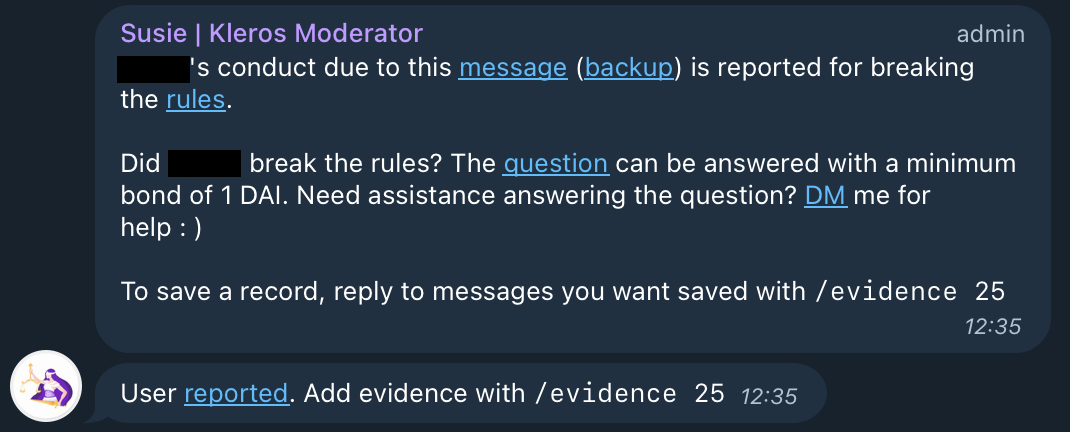
After the bonds are placed, an escalation game ensues where users can place bonds on the either side of the reality.eth oracle question (Yes/No). Once the process is completed, whichever side wins, their bonds are returned. If the decision is disputed, it is directly sent to the Kleros Court.
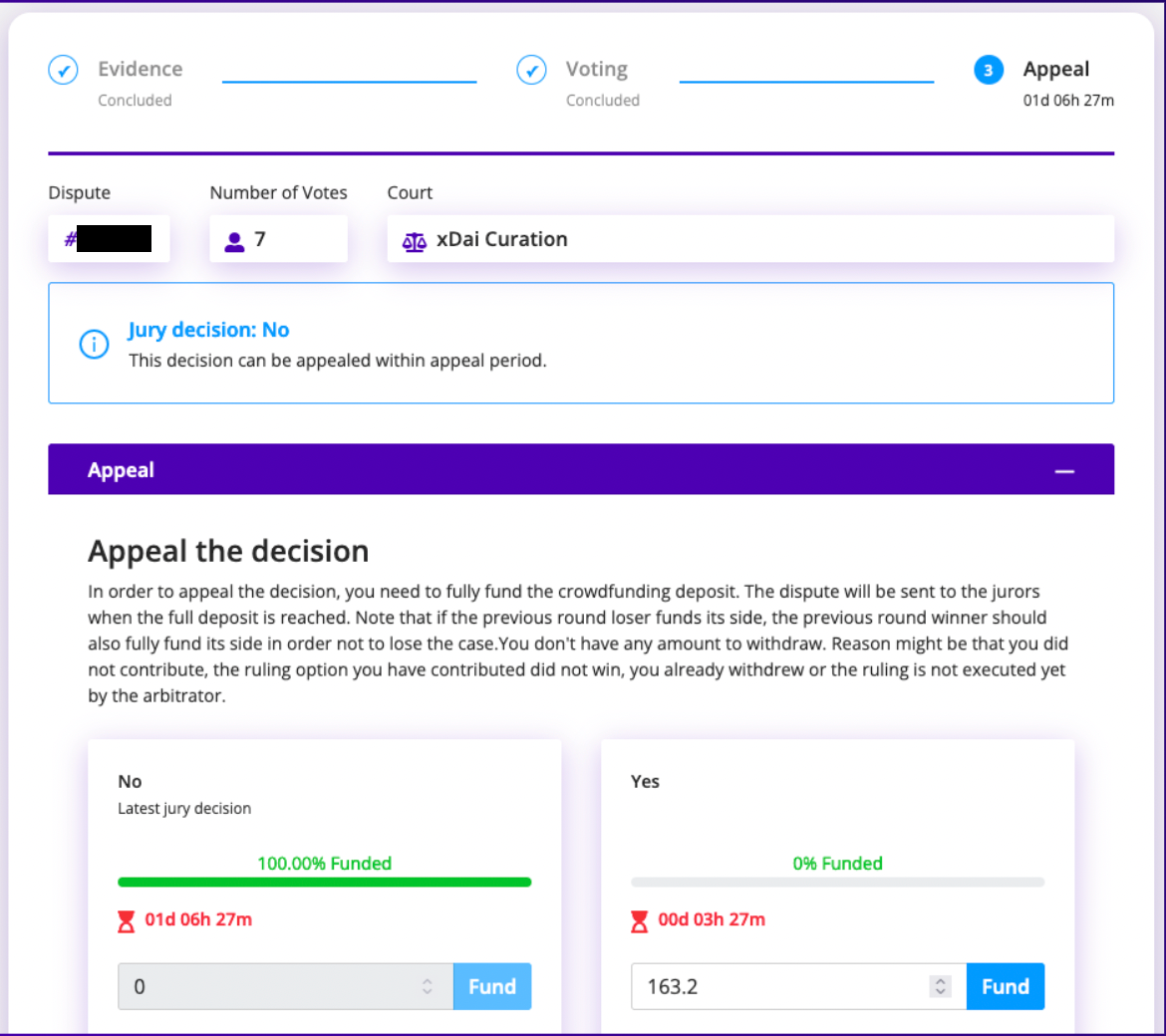
Once the final decision is in place, the user is either muted/banned for a specific time period or allowed to participate further in the channel.
Get Susie Now!
Do you have a need for a moderation bot that can safeguard your community from trolls, flamers, spam and all negative actors?
Susie provides fast, optimistic content moderation with an added benefit of dispute resolution via the Kleros Court in a fair and transparent manner.
Feel free to get in touch with us and get a custom implementation of Susie now by reaching out to our Integrations Lead, Guangmian directly or via our official Telegram group.
If you'd like to take it for a test drive on your own, feel free to check the documentation here and be on your way to the future of decentralized social media moderation!

